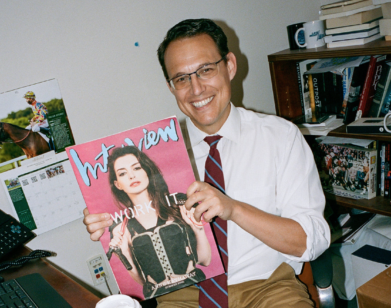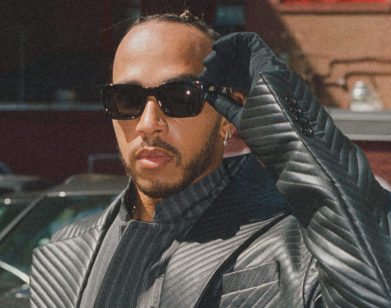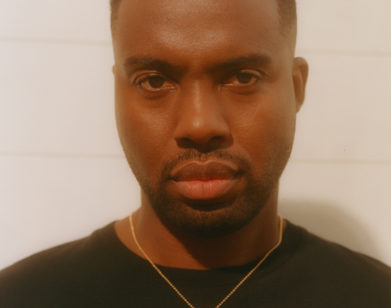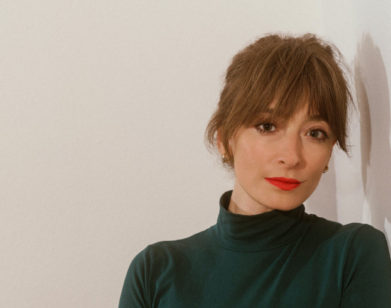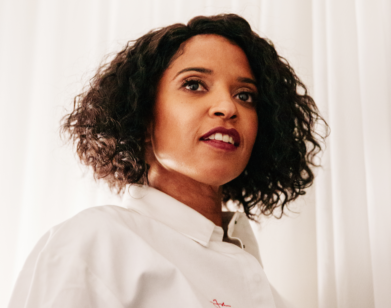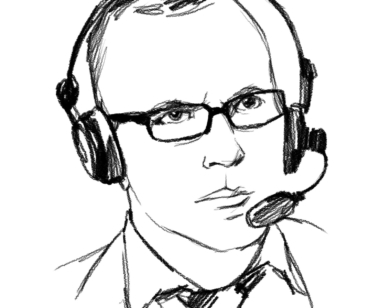Jumaane Williams Tells La La Anthony Why He’s “Not Okay”
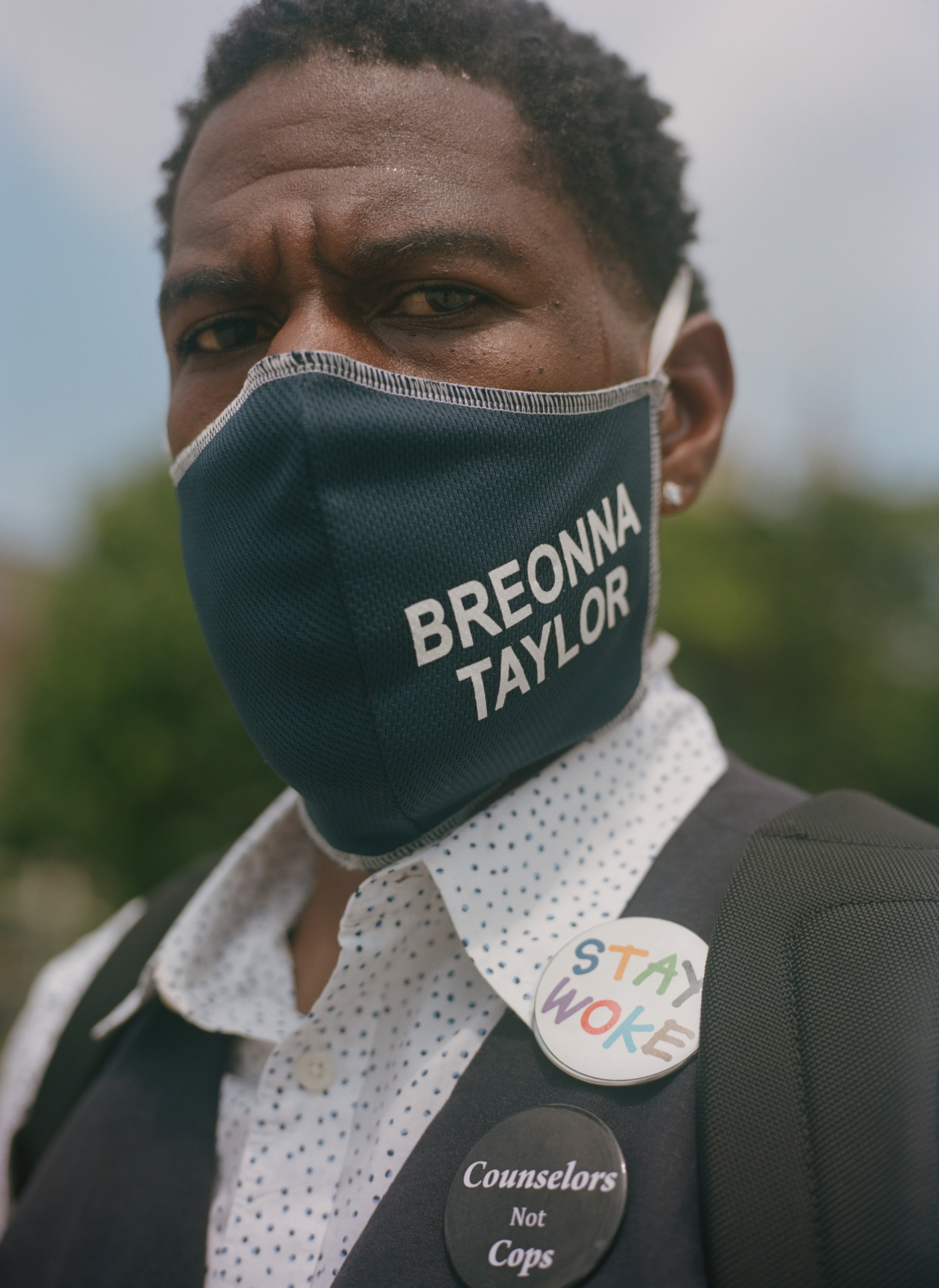
On June 4, thousands of New Yorkers gathered at Cadman Plaza in Brooklyn for a memorial service for George Floyd, the man who was murdered weeks prior by a policeman in Minneapolis, and whose death sounded the alarm on racism and police brutality across the entire world. Alongside Terrence Floyd, George’s brother, and Mayor Bill de Blasio, among others, there was Jumaane Williams, New York City’s Public Advocate and a champion of Black lives. “We have the wrong president, the wrong governor, and the wrong mayor,” Williams told the crowd to whoops and hollers after Mayor de Blasio—who drew criticism for his handling of citywide protests, which included an 8pm curfew and swarms of cops in riot gear—was booed off the stage, the crowd chanting “resign.” The speech spread across social media like wildfire, prompting many to ask whether Williams himself would be the right one.
Before elected Public Advocate in 2019, the 44-year-old represented Brooklyn’s 45th District in the New York City Council for ten years. A first-generation Brooklynite of Grenadian heritage, Williams has dedicated his career to community organizing and activism, fighting for affordable housing as the executive director of New York State Tenants & Neighbors before joining City Hall. As an elected official, he’s championed legislation to end the city’s practice of racially-motivated stop and frisk policing, combat gun violence, and save communities from the effects of gentrification. Now running for reelection, Williams has focused his energy on keeping these issues—and the momentum of this summer’s Black Lives Matter protests—at the forefront of the city and nation’s agenda. Come November 4—as he tells La La Anthony, the actor, activist, and fellow Brooklynite—mission number one for the people of this nation is to get Trump out of the White House and replace him with Biden and Harris. Mission number two: hold them accountable. —SARAH NECHAMKIN
———
ANTHONY: I’ve been thinking a lot about this whole Black Lives Matter movement—what just happened in Philly yesterday, which was just so heartbreaking. How has this moment confirmed what you have known and experienced in your own life? And where do we go from here?
WILLIAMS: It’s an interesting time. I feel like every so often the nation tries to atone for what it means to have enslaved an entire race of people for hundreds of years, but they can never really get it right. I think this is one of those times. It comes up, it bubbles up, and then everybody just kind of dissipates. What I’ve known, and I think people of good conscience have known for very long time, is that this is nothing new. It’s always there. Sadly, this country is rooted in bigotry, and race is a huge part of that. If the “founding fathers” woke up, they would say, “I’m not sure why you had a Black president or why women are voting, but otherwise, you did a pretty good job of continuing what we put forth and the systems that we put out there. Even Dr. King himself said he was worried what would happen if we integrated into a burning house. All this racism and bigotry is as American as apple pie. People try to say, “Oh, this is not the American way.” It very much is. But also American are those people who always fought for the ideal. I’m proud to be part of that America.
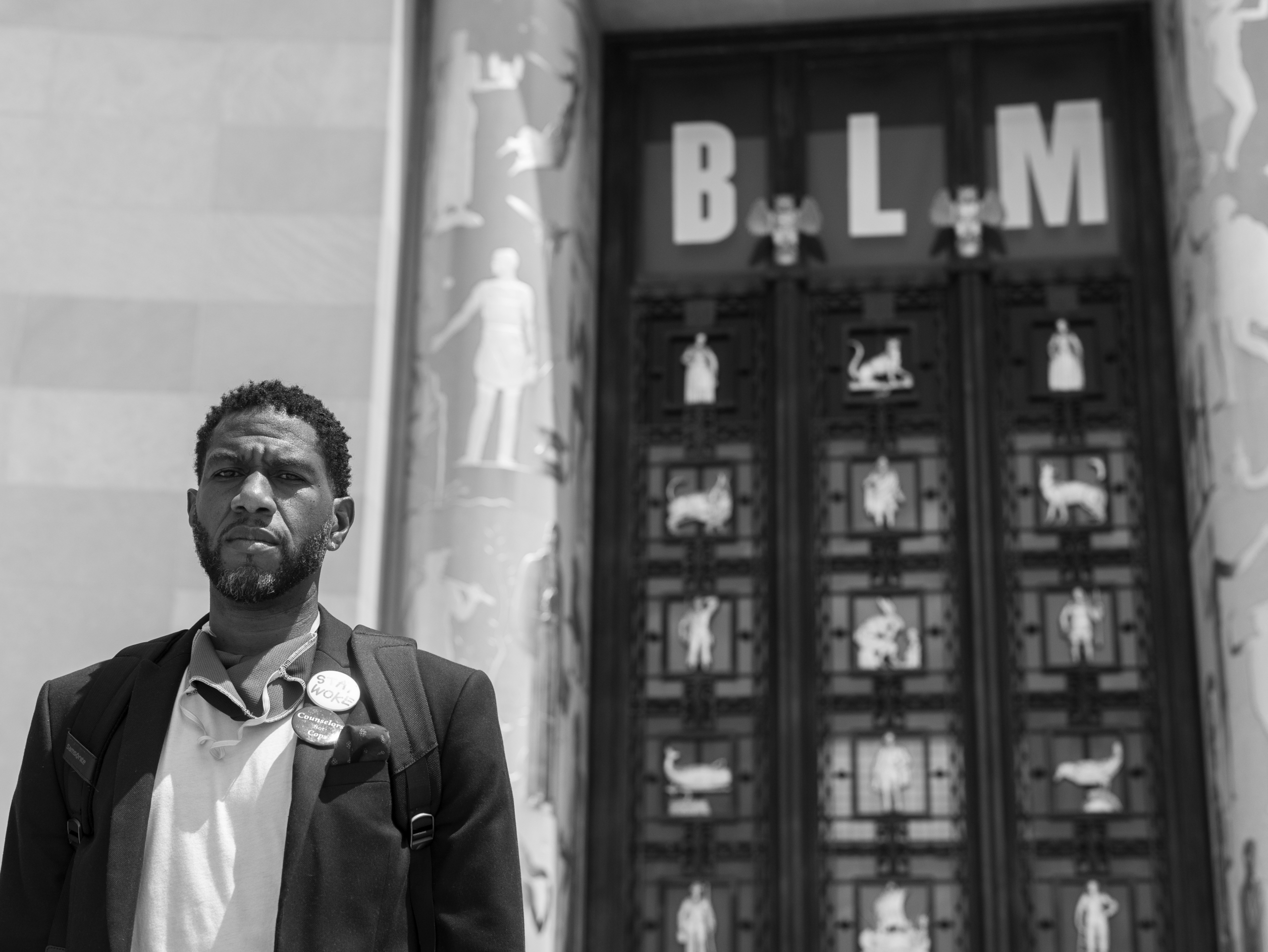
ANTHONY: But with what we’ve seen starting with George Floyd and everything else that’s happened in 2020, does anything about this time feel different to you?
WILLIAMS: Quickly, I’d be like, “Yes.” But then, I’ve got to remember I wasn’t around for most of the other ones. I don’t know exactly how that felt. I feel like the folks who were doing stuff before and the ancestors, they probably dealt with a lot worse. Although I think this feels pretty bad, particularly for the past few decades. We’re in a situation I don’t think we’ve been in a while, for a combination of reasons. Obviously, you have the most combined, bigoted and incompetent person running the country that has ever been, and that’s not even hyperbole. That, combined with a pandemic, where people were locked in the house for months and seeing their neighbors being sick, dying, losing their jobs. And then, you had Ahmaud Arbery, Breonna Taylor, George Floyd. I think that that combination of things does make it unique in a way. I’m concerned that we’re going to have collective amnesia when we get out of this space. That’s what concerns me the most.
ANTHONY: Right. So what do you feel are the next steps that need to happen on the government level to push towards change, toward justice and equality? We tweet, we hashtag, we protest, we this, we that. But what actually are the next steps that need to happen? Obviously, voting is something that has to happen, and we have to encourage each other to vote.
WILLIAMS: A hundred percent. But toward what gain? We’ve got to reform the system and change the system. The system is actually working how it was designed and created to work—that’s the problem. My analogy is, if you’re in a house and there’s a little, small crack in the wall, you slack it up and you’re good. But if the foundation of the house is bad, that’s a lot more work. And so, what we have to do now is actually take up the system and put another one in a place that is designed more equitably and more toward justice. But the current system rejects that. Right after Reconstruction, you had the rise of the Ku Klux Klan and the rise of the Black codes. We had a Black president, and that brought us Trump. The system is trying to autocorrect things that weren’t supposed to really happen in the first place. Republicans and Democrats have both brought us to this thing. And so, I get frustrated. I’m voting Biden-Harris—that’s what I got to do to get rid of Trump. That’s mission number one. Mission number two is holding them accountable.
ANTHONY: Right.
WILLIAMS: We have to stop pretending, somehow, that Democrats aren’t also very responsible for where we are. There are Democrats who’ve led states and cities, including New York, including right now, that have brought us to this point, and they need to be held to account. And this two-party system is a problem. The Democrats take our votes for granted, but you can’t jump out of the frying pan into the fire. My hope is, after this, sort of like they did in South Africa and other places, there’s some truth and reconciliation that goes on so that we can move forward with a real plan.
ANTHONY: Absolutely. That leads me to my next question. How are you feeling about the upcoming election? You’re saying, “I’m voting for Biden and Harris to get Trump out of there,” but do you feel hopeful? Do you see Kamala Harris, in particular, pushing forward representation seen at the highest level of government?
WILLIAMS: So, first I feel like we have to lift up Black women, full stop.
ANTHONY: Mmhmm. A hundred percent.
WILLIAMS: I respect where she is and that position and what that means for Black women. I endorsed Bernie Sanders twice, so that’s how think and how I feel. The Biden-Harris ticket wouldn’t have been my third or fourth choice of direction to go, but this is where we’re at right now. On Election Day, we’re going to have one of two choices. We’re going to celebrate, “Yes, we got this man out,” but even if we do that, we are still going to be forced to reckon and explain to the world and to ourselves why it took so much energy, so much money, so many resources to get rid of a clearly incompetent, bigoted person. That’s the win. I can’t even imagine what it is if we don’t get the win. For me, it’s about, “Okay, immediately we have to begin holding Biden/Harris accountable.” They both have things in their background that gives many people of good conscience, who’ve been fighting for social justice and equity, pause. And there has to be accountability for that, there’s no way around it.
But again, mission number one is getting this man out of office. But also, remember that it’s not just this man. There’s millions and millions of people who are celebrating and lifting him up, and we can’t forget about that. He is the personification of the worst of us, and it’s sad to watch.
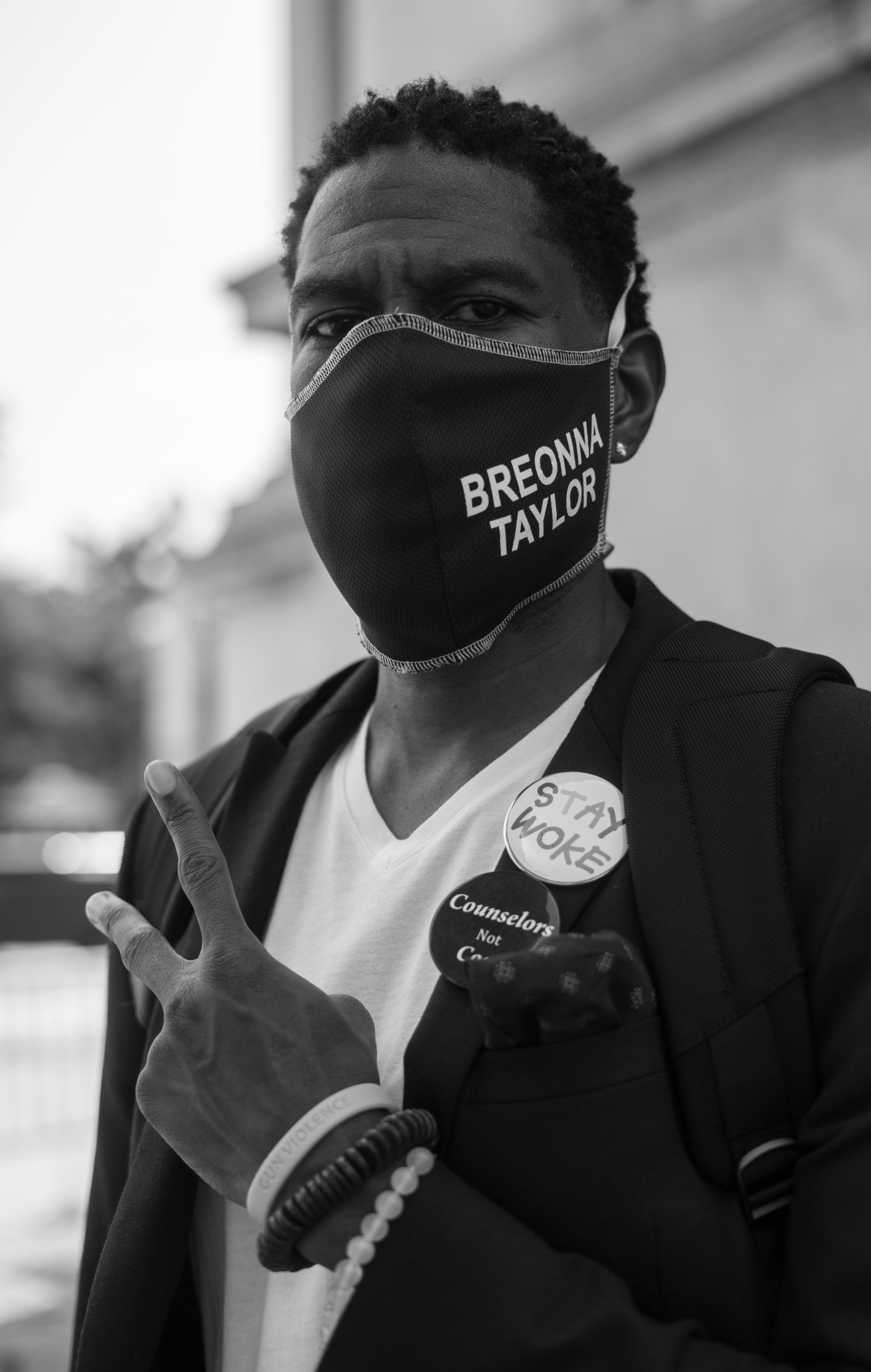
ANTHONY: It’s definitely sad to watch. Let’s talk about Brooklyn, where I’m from and where you’re representing. How do you see it changing now, versus 10 and 20 years ago? In what direction do you see it going?
WILLIAMS: Well, first of all, BK all day. I’m from Brooklyn, I’m proud of that. I’m a citywide elected official, so I can no longer say that Brooklyn is the best borough. When I’m no longer a citywide elected official, I’ll probably go back to it.
ANTHONY: BK all day.
WILLIAMS: There’s been a boom in Brooklyn and in New York City. The problem is, it left the same groups of folks who’ve been suffering for such a long time behind. It looms so large. And again, it wasn’t just Republicans, it was Democrats as well, that brought us here. Because trickle-down economics doesn’t work in any arena, whether it’s housing, whether it’s business. We saw booms and re-zonings and people coming in from all over. We’ve seen people who came in because of what Brooklyn was and what Brooklyn represented and then try to change that. The pandemic did not create any new problems, it magnified and exacerbated the problems we failed to address for a very long time. When the next boom comes, when we get out of this, we have to remember that we have to now make sure everybody is included in that boom, because we all suffer when large swaths of people are not included.
Quite frankly, what’s the most disheartening is the data set that often lets us know when a neighborhood is going to gentrify. People think it’s when a Starbucks shows up or something, but it’s the crime rates. When crime rates go down, it’s a great indication of whether a neighborhood is going to gentrify. So we have communities that have had to decide whether they wanted to live in a community that has high crime rates or a community that they can afford, and that’s a terrible choice to have to make. But we have the ability to address both of those if we have leaders that have the courage to really do it and don’t just respond to who cuts the biggest check.
ANTHONY: I want to go further with that. How do you do that? How do you ensure that people don’t just take the money and run?
WILLIAMS: Well, from the electorate side, we definitely have to elect a different sets of folks. That’s happening a little bit, which is good to see. I always went with the seat that I’m holding is not more important than the people I’m representing. I didn’t get elected to get reelected or go to higher office. Make no mistake, I would like to, but that’s not what I got elected for. I got elected to do a job.
And hopefully, that does get me reelected, but it may not, and we have to elect more people like that. I support term limits. This thing where people are in office for 30, 40, 50 years, it makes a mockery of the system. These current term limits we have in the city are probably too short but, in general, term limits are a good thing. We have to think about it for Congress. Public finance elections is another one. What we have in the city, and how we were able to get different sets of people on the City Council, is we have term limits and we started getting public finance elections. And you saw policies begin to change because people would no longer have to listen to the normal precedents that come in.
ANTHONY: Let’s talk about COVID for a minute. Do you find that the community’s response to the virus has been unique in New York City?
WILLIAMS: I think, nationally, we’re going through a collective trauma. A lot of times when I speak, I start off by saying, “I want everybody to say, ‘I’m not okay’,” and everybody does it. And then, I say—
ANTHONY: I’m not okay. I’m saying, “I’m not okay.”
WILLIAMS: And then I would ask just the Black folks in the crowd to say, “I’m not okay.” Because everyone is going through a collective trauma, and then there’s a subset of us that are going through a collective trauma in a different way and still have to go to work the next day and pretend like they didn’t see that video of someone being killed unarmed.
ANTHONY: Right.
WILLIAMS: Black women in particular are at work and if they give even an ounce of emotion are viewed as troublesome. And then they have to deal oftentimes with the fragility of peers, from colleagues with less melanin in their skin, that can really make it hard for them. So, we have to create a space where we all together are saying we’re not okay and we’re creating space for those of us who are dealing with even more. It took a while for me to be able to say, “I’m not alright, we’re not alright.” And then, “How do we get to alright?” I’m not sure. I’m happy that here in New York, there are networks that don’t exist in other places that were able to fill some of the gaps where government failed. We had a failure of leadership. We have the wrong president, the wrong governor, and the wrong mayor for the time we’re in. The one thing that people forget about New Yorkers when they talk about our brashness and all the other stuff which we earn—they forget about love. There’s a lot of love in New York City for our fellow New Yorkers. And you’ve seen people and organizations fill in the gap where government failed.
ANTHONY: With all that being said, how do you see the next year looking for the city and the country? You hear so many different reports that there’s another wave coming, it’s only going to get worse, we’re not coming out of this anytime soon.
WILLIAMS: It’s rough. We have to be honest with ourselves, it’s going to be a rough couple of years. It’s been exacerbated by a president who did worse than nothing. If he had just did nothing, we might be in better shape. I mean, it’s just… I don’t even know what the words are. But here locally, leaders were better just by a degree. I mean, not even that much. New York was the epicenter of the epicenter, and that’s not just because of Trump, that’s because Andrew Cuomo and Bill de Blasio made terrible decisions.
I’m worried because I see some of those same mistakes bubbling up as we go into this next wave. So, just as we have to get through whatever’s left of this presidency, we also have to get through whatever’s left of this mayoral administration. And my hope is, as we start talking about the next mayoral administration, we can force candidates to put forth a real plan on how we get through this. Because right now I don’t feel there is one.
ANTHONY: I want to talk about your career. We talked about the next year for the city and the country, but for you personally, where do you see yourself going next?
WILLIAMS: You know, it’s funny. I ran for Lieutenant Governor, so I got really close. People didn’t think I was going to get anywhere near where I did, and praise god for that. But actually, at that point, I was about to get out of politics. My first love is acting.
ANTHONY: Oh, wow. Look at that.
WILLIAMS: Yeah. My tics go away when I’m on stage acting, so it’s a very zen place for me. My therapist said, “Make sure you keep doing that.” I spoke to my fiancée—she said she would give me a year to go through some midlife crisis stuff and try to do some acting. I don’t know how often she’s going to do that.
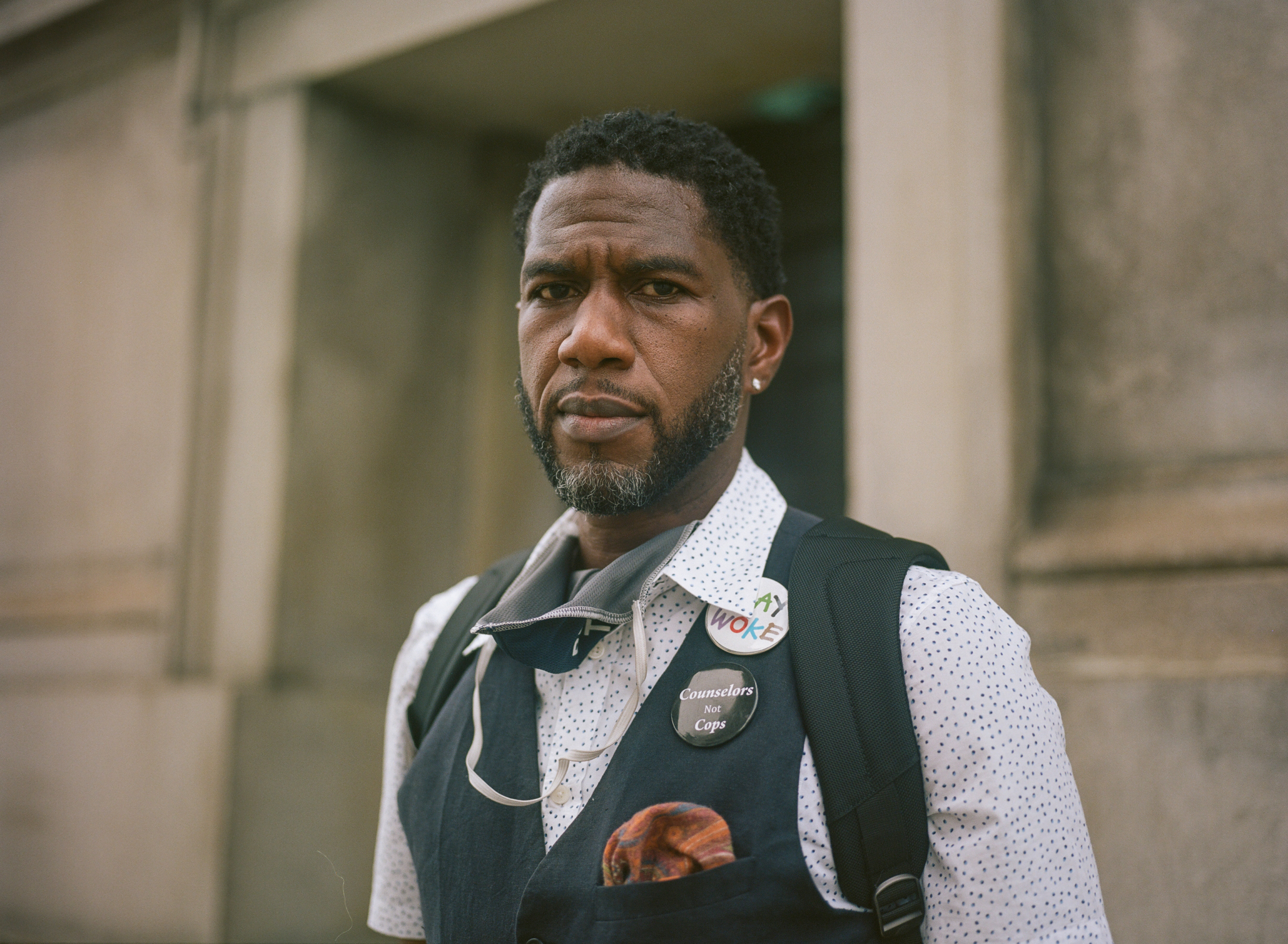
ANTHONY: I love that.
WILLIAMS: But then I got drafted to run for Public Advocate here, and I did that. My hope is that the residents in New York City will reelect me for Public Advocate again, but it remains to be seen what happens. I want to stay involved, civically and politically. I also want to explore and make sure I don’t drop off. My artistic, acting side is an important piece as well. And I want to also make sure I continue taking care of myself in the way that I have been for quite some time, and encourage others to do so too. I’ve been in therapy for about four or five years now. Best thing I ever did.
ANTHONY: Wow.
WILLIAMS: And I want to make sure we encourage, particularly communities that see it as a weakness, to take that away and make sure the resources are there for folks to access.
ANTHONY: It’s so valuable that we do that, because so many of us have been taught growing up that that’s not for us, and what do we need that for? In our communities, there’s just so many people that frown upon therapy or don’t take mental health seriously. And you’re just seeing now how critical it is for especially our communities to get therapy and focus on themselves.
WILLIAMS: Facts. That’s for real. I think now, as we go through this, people are seeing more and more that we’re not doing great all the time. When people say, “How are you doing?” “I’m good.” Too often, that’s not the truth.
ANTHONY: I’m taking a page out of your book and being okay with saying I’m not okay, because nothing about this is okay. Some days are better than others, but to acknowledge that you’re not okay is definitely the first step. I love that when you speak you do that and give people a safe space to say that they’re not okay.
WILLIAMS: For real. I live in a state of perpetual, pragmatic hope. I believe in the best of this country and what it could be and I want to strive to help bring that about.
ANTHONY: You have a fan and supporter in me, and I’m just really humbled that I was able to do this with you today. I’ll see you on the acting side.
WILLIAMS: No doubt. Peace and blessings, love and light.

